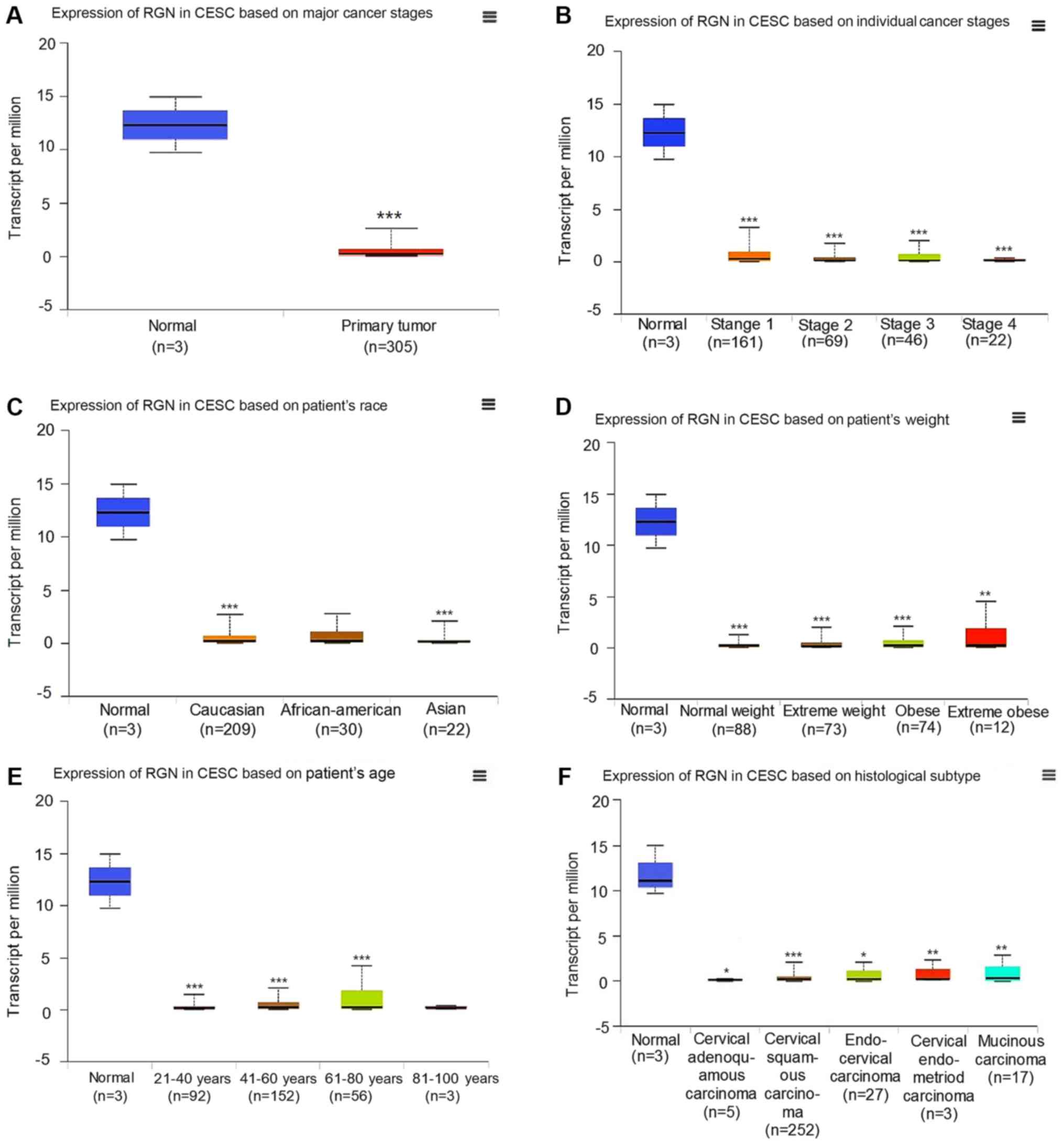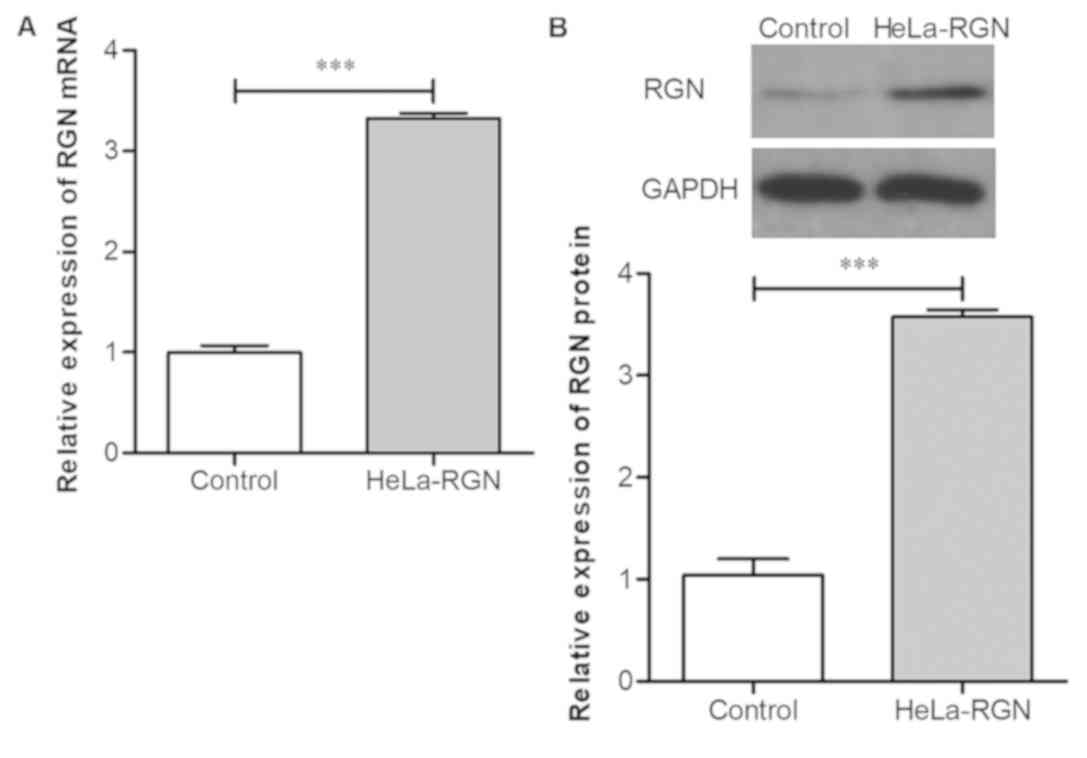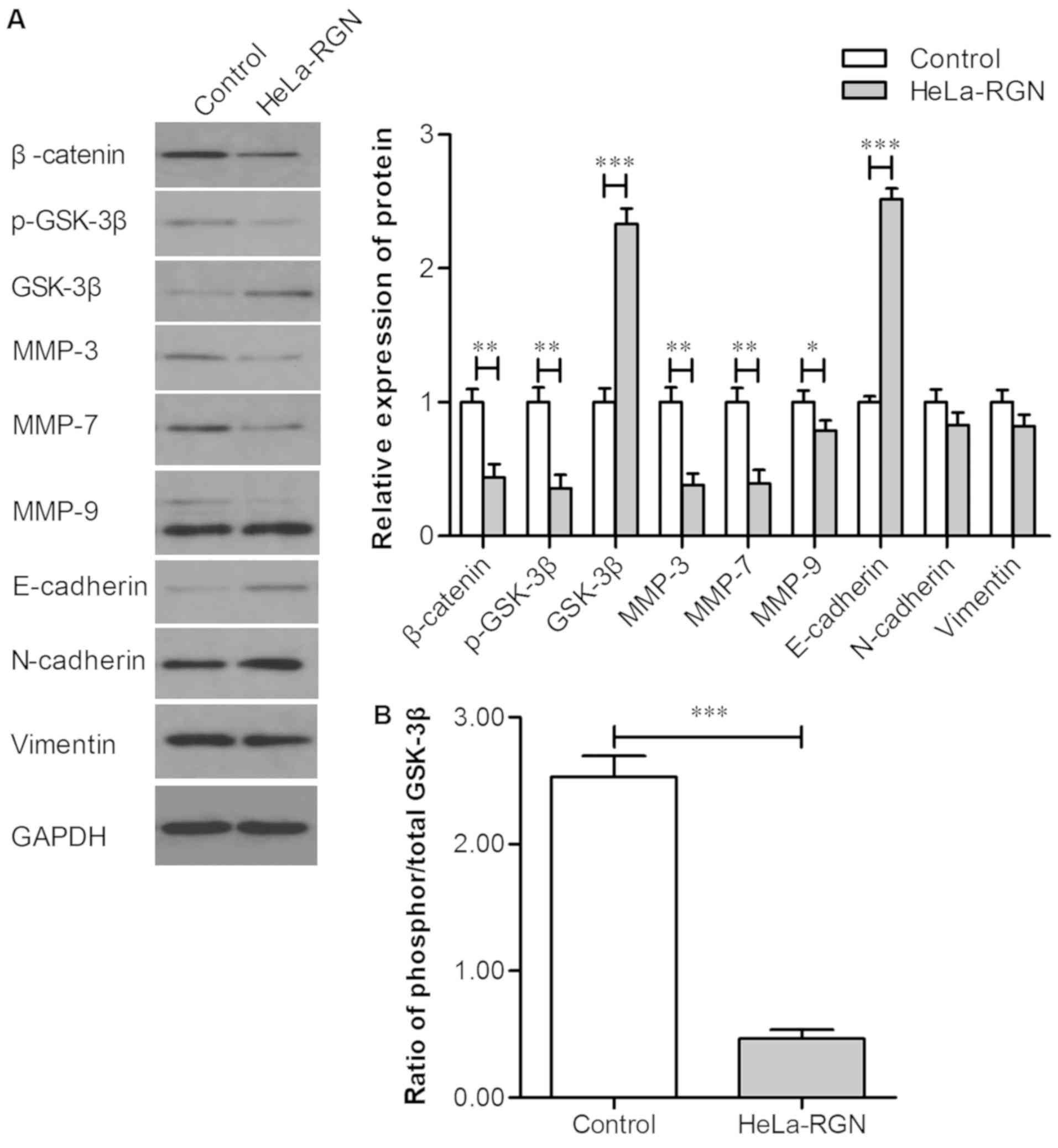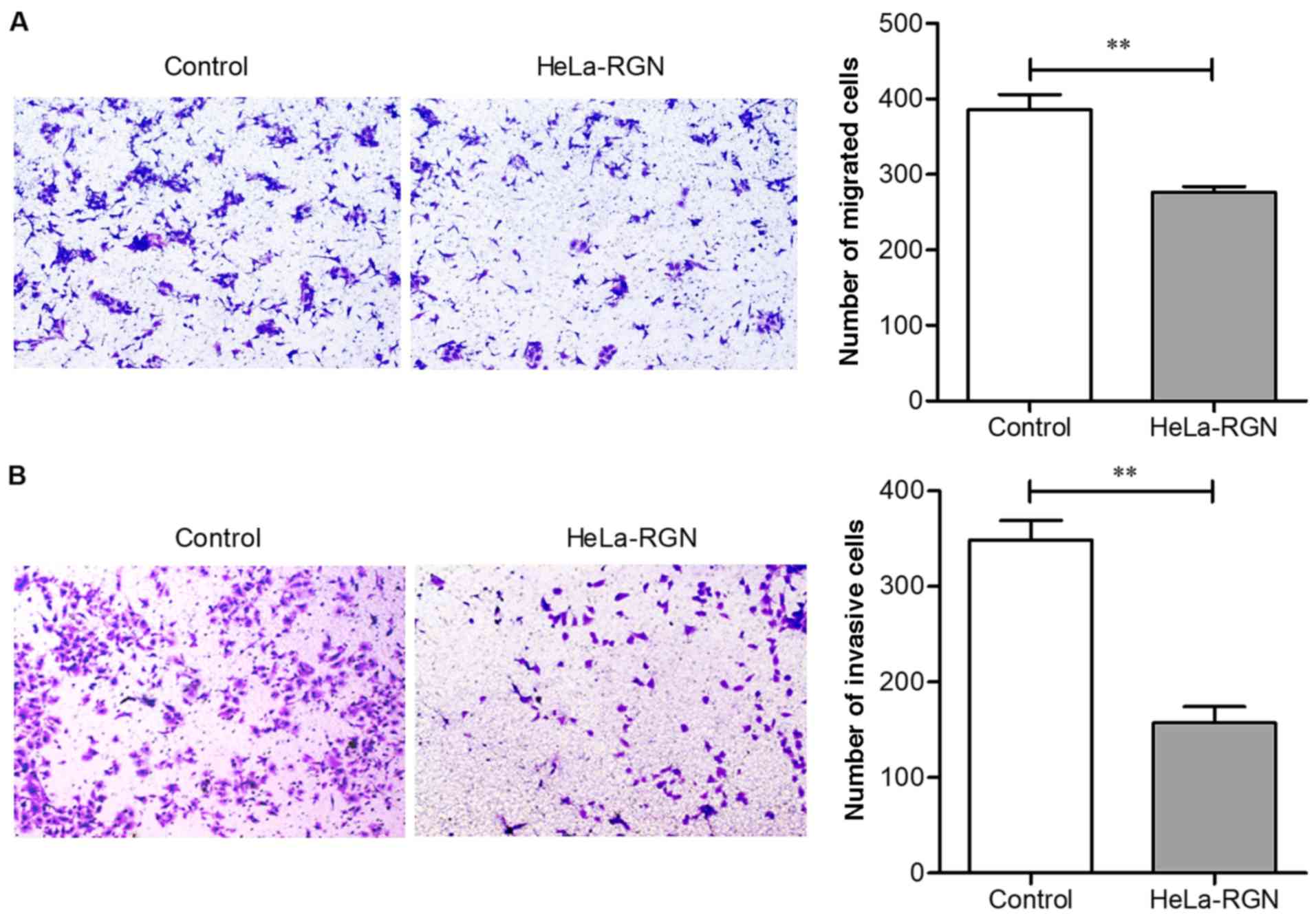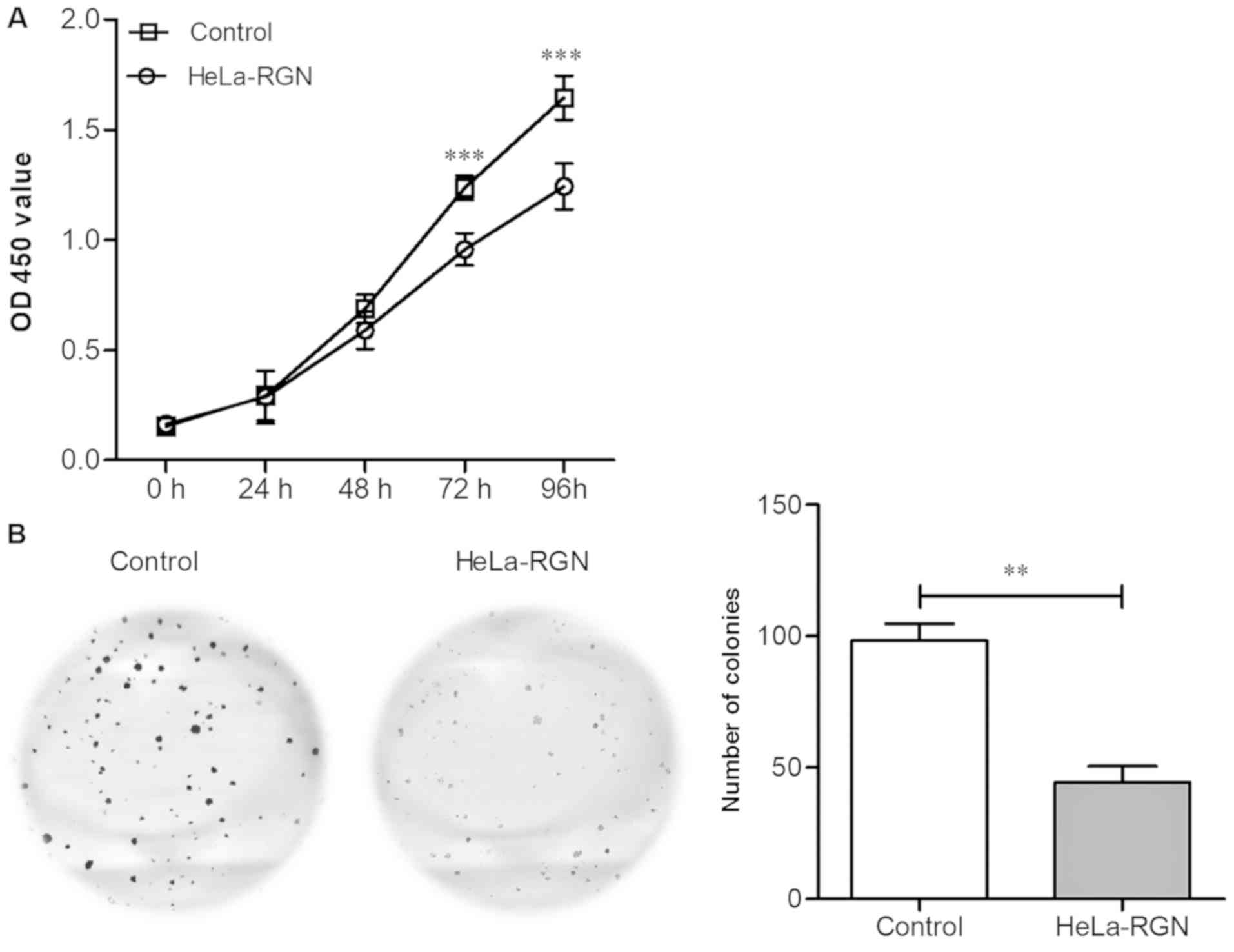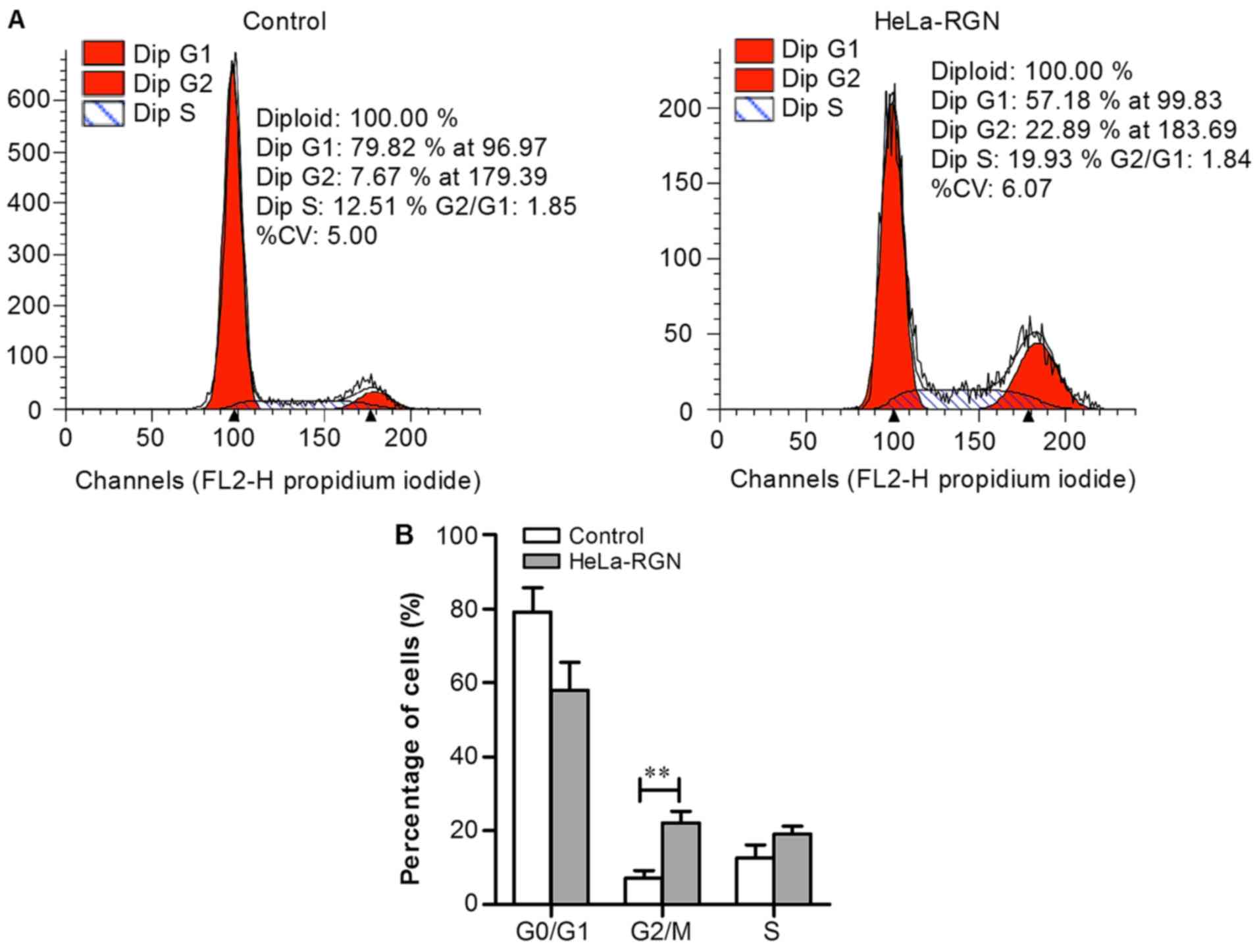|
1
|
Yamaguchi M and Sugii K: Properties of
calcium-binding protein isolated from the soluble fraction of
normal rat liver. Chem Pharm Bull (Tokyo). 29:567–570. 1981.
View Article : Google Scholar : PubMed/NCBI
|
|
2
|
Yamaguchi M and Yoshida H: Regulatory
effect of calcium-binding protein isolated from rat liver cytosol
on activation of fructose 1,6-diphosphatase by Ca2+-calmodulin.
Chem Pharm Bull (Tokyo). 33:4489–4493. 1985. View Article : Google Scholar : PubMed/NCBI
|
|
3
|
Yamaguchi M and Mori S: Effect of Ca2+ and
Zn2+ on 5′-nucleotidase activity in rat liver plasma membranes:
Hepatic calcium-binding protein (regucalcin) reverses the Ca2+
effect. Chem Pharm Bull (Tokyo). 36:321–325. 1988. View Article : Google Scholar : PubMed/NCBI
|
|
4
|
Yamaguchi M, Mori S and Suketa Y: Effects
of Ca2+ and V5+ on glucose-6-phosphatase activity in rat liver
microsomes: The Ca2+ effect is reversed by regucalcin. Chem Pharm
Bull (Tokyo). 37:388–390. 1989. View Article : Google Scholar : PubMed/NCBI
|
|
5
|
Yamaguchi M and Shibano H: Effect of
calcium-binding protein on the activation of phosphorylase a in rat
hepatic particulate glycogen by Ca2+. Chem Pharm Bull (Tokyo).
35:2581–2584. 1987. View Article : Google Scholar : PubMed/NCBI
|
|
6
|
Yamaguchi M and Shibano H: Calcium-binding
protein isolated from rat liver cytosol reverses activation of
pyruvate kinase by Ca2+. Chem Pharm Bull (Tokyo). 35:2025–2029.
1987. View Article : Google Scholar : PubMed/NCBI
|
|
7
|
Yamaguchi M and Shibano H: Reversible
effect of calcium-binding protein on the Ca2+-induced activation of
succinate dehydrogenase in rat liver mitochondria. Chem Pharm Bull
(Tokyo). 35:3766–3700. 1987. View Article : Google Scholar : PubMed/NCBI
|
|
8
|
Yamaguchi M, Mori S and Kato S:
Calcium-binding protein regucalcin is an activator of
(Ca2+-Mg2+)-adenosine triphosphatase in the plasma membranes of rat
liver. Chem Pharm Bull (Tokyo). 36:3532–3539. 1988. View Article : Google Scholar : PubMed/NCBI
|
|
9
|
Zhang SC, Liang MK, Huang GL, Jiang K,
Zhou SF and Zhao S: Inhibition of SMP30 gene expression influences
the biological characteristics of human Hep G2 cells. Asian Pac J
Cancer Prev. 15:1193–1196. 2014. View Article : Google Scholar : PubMed/NCBI
|
|
10
|
Denny L: Cervical cancer: Prevention and
treatment. Discov Med. 14:125–131. 2012.PubMed/NCBI
|
|
11
|
Bray F, Ferlay J, Soerjomataram I, Siegel
RL, Torre LA and Jemal A: Global cancer statistics 2018: GLOBOCAN
estimates of incidence and mortality worldwide for 36 cancers in
185 countries. CA Cancer J Clin. 68:394–424. 2018. View Article : Google Scholar : PubMed/NCBI
|
|
12
|
Smith HO, Tiffany MF, Qualls CR and Key
CR: The rising incidence of adenocarcinoma relative to squamous
cell carcinoma of the uterine cervix in the United States-a 24-year
population-based study. Gynecol Oncol. 78:97–105. 2000. View Article : Google Scholar : PubMed/NCBI
|
|
13
|
Galic V, Herzog TJ, Lewin SN, Neugut AI,
Burke WM, Lu YS, Hershman DL and Wright JD: Prognostic significance
of adenocarcinoma histology in women with cervical cancer. Gynecol
Oncol. 125:287–291. 2012. View Article : Google Scholar : PubMed/NCBI
|
|
14
|
Shimada M, Kigawa J, Nishimura R,
Yamaguchi S, Kuzuya K, Nakanishi T, Suzuki M, Kita T, Iwasaka T and
Terakawa N: Ovarian metastasis in carcinoma of the uterine cervix.
Gynecol Oncol. 101:234–237. 2006. View Article : Google Scholar : PubMed/NCBI
|
|
15
|
Huang YT, Wang CC, Tsai CS, Lai CH, Chang
TC, Chou HH, Hsueh S, Chen CK, Lee SP and Hong JH: Long-term
outcome and prognostic factors for adenocarcinoma/adenosquamous
carcinoma of cervix after definitive radiotherapy. Int J Radiat
Oncol Biol Phy. 80:429–436. 2011. View Article : Google Scholar
|
|
16
|
Katanyoo K, Tangjitgamol S, Chongthanakorn
M, Tantivatana T, Manusirivithaya S, Rongsriyam K and Cholpaisal A:
Treatment outcomes of concurrent weekly carboplatin with radiation
therapy in locally advanced cervical cancer patients. Gynecol
Oncol. 123:571–576. 2011. View Article : Google Scholar : PubMed/NCBI
|
|
17
|
Yee GP, de Souza P and Khachigian LM:
Current and potential treatments for cervical cancer. Curr Cancer
Drug Targets. 13:205–220. 2013. View Article : Google Scholar : PubMed/NCBI
|
|
18
|
Kubista M, Andrade JM, Bengtsson M,
Forootan A, Jonák J, Lind K, Sindelka R, Sjöback R, Sjögreen B,
Strömbom L, et al: The real-time polymerase chain reaction. Mol
Aspects Med. 27:95–125. 2006. View Article : Google Scholar : PubMed/NCBI
|
|
19
|
Inagaki S and Yamaguchi M: Suppressive
role of endogenous regucalcin in the enhancement of protein kinase
activity with proliferation of cloned rat hepatoma cells (H4-II-E).
J Cell Biochem Suppl. 36 (Suppl):S12–S18. 2001. View Article : Google Scholar
|
|
20
|
Inagaki S and Yamaguchi M: Regulatory role
of endogenous regucalcin in the enhancement of nuclear
deoxyribonuleic acid synthesis with proliferation of cloned rat
hepatoma cells (H4-II-E). J Cell Biochem. 82:704–711. 2001.
View Article : Google Scholar : PubMed/NCBI
|
|
21
|
Misawa H, Inagaki S and Yamaguchi M:
Suppression of cell proliferation and deoxyribonucleic acid
synthesis in the cloned rat hepatoma H4-II-E cells overexpressing
regucalcin. J Cell Biochem. 84:143–149. 2001. View Article : Google Scholar : PubMed/NCBI
|
|
22
|
Yamaguchi M and Daimon Y: Overexpression
of regucalcin suppresses cell proliferation in cloned rat hepatoma
H4-II-E cells: Involvement of intracellular signaling factors and
cell cycle-related genes. J Cell Biochem. 95:1169–1177. 2005.
View Article : Google Scholar : PubMed/NCBI
|
|
23
|
Yamaguchi M: Role of regucalcin in
maintaining cell homeostasis and function (review). Int J Mol Med.
15:371–389. 2005.PubMed/NCBI
|
|
24
|
Yamaguchi M, Osuka S, Shoji M, Weitzmann
MN and Murata T: Survival of lung cancer patients is prolonged with
higher regucalcin gene expression: Suppressed proliferation of lung
adenocarcinoma A549 cells in vitro. Mol Cell Biochem. 430:37–46.
2017. View Article : Google Scholar : PubMed/NCBI
|
|
25
|
Yamaguchi M and Murata T: Suppressive
effects of exogenous regucalcin on the proliferation of human
pancreatic cancer MIA PaCa-2 cells in vitro. Int J Mol Med.
35:1773–1778. 2015. View Article : Google Scholar : PubMed/NCBI
|
|
26
|
Marques R, Vaz CV, Maia CJ, Gomes M, Gama
A, Alves G, Santos CR, Schmitt F and Socorro S: Histopathological
and in vivo evidence of regucalcin as a protective molecule in
mammary gland carcinogenesis. Exp Cell Res. 330:325–335. 2015.
View Article : Google Scholar : PubMed/NCBI
|
|
27
|
Maia C, Santos C, Schmitt F and Socorro S:
Regucalcin is under-expressed in human breast and prostate cancers:
Effect of sex steroid hormones. J Cell Biochem. 107:667–676. 2009.
View Article : Google Scholar : PubMed/NCBI
|
|
28
|
Yamaguchi M, Osuka S and Murata T:
Prolonged survival of patients with colorectal cancer is associated
with a higher regucalcin gene expression: Overexpression of
regucalcin suppresses the growth of human colorectal carcinoma
cells in vitro. Int J Oncol. 53:1313–1322. 2018.PubMed/NCBI
|
|
29
|
Yamaguchi M, Osuka S, Weitzmann MN,
El-Rayes BF, Shoji M and Murata T: Prolonged survival in
hepatocarcinoma patients with increased regucalcin gene expression:
HepG2 cell proliferation is suppressed by overexpression of
regucalcin in vitro. Int J Oncol. 49:1686–1694. 2016.
View Article : Google Scholar : PubMed/NCBI
|
|
30
|
Yamaguchi M, Osuka S, Weitzmann MN,
El-Rayes BF, Shoji M and Murata T: Prolonged survival in pancreatic
cancer patients with increased regucalcin gene expression:
Overexpression of regucalcin suppresses the proliferation in human
pancreatic cancer MIA PaCa-2 cells in vitro. Int J Oncol.
48:1955–1964. 2016. View Article : Google Scholar : PubMed/NCBI
|
|
31
|
Tsurusaki Y and Yamaguchi M: Role of
regucalcin in liver nuclear function: Binding of regucalcin to
nuclear protein or DNA and modulation of tumor-related gene
expression. Int J Mol Med. 14:277–281. 2004.PubMed/NCBI
|
|
32
|
Tsurusaki Y and Yamaguchi M:
Overexpression of regucalcin modulates tumor-related gene
expression in cloned rat hepatoma H4-II-E cells. J Cell Biochem.
90:619–626. 2003. View Article : Google Scholar : PubMed/NCBI
|
|
33
|
Jacques BE, Montgomery WH IV, Uribe PM,
Yatteau A, Asuncion JD, Resendiz G, Matsui JI and Dabdoub A: The
role of Wnt/β-catenin signaling in proliferation and regeneration
of the developing basilar papilla and lateral line. Dev Neurobiol.
74:438–456. 2014. View Article : Google Scholar : PubMed/NCBI
|
|
34
|
Bahrami A, Hasanzadeh M, ShahidSales S,
Yousefi Z, Kadkhodayan S, Farazestanian M, Joudi Mashhad M, Gharib
M, Mahdi Hassanian S and Avan A: Clinical significance and
prognosis value of Wnt signaling pathway in cervical cancer. J Cell
Biochem. 118:3028–3033. 2017. View Article : Google Scholar : PubMed/NCBI
|
|
35
|
Burgy O and Königshoff M: The WNT
signaling pathways in wound healing and fibrosis. Matrix Biol
68–69. 67–80. 2018. View Article : Google Scholar
|
|
36
|
Kypta RM and Waxman J: Wnt/β-catenin
signalling in prostate cancer. Nat Rev Urol. 9:418–428. 2012.
View Article : Google Scholar : PubMed/NCBI
|
|
37
|
Wang X, Su GY, Zhao C, Qu FZ, Wang P and
Zhao YQ: Anticancer activity and potential mechanisms of 1C, a
ginseng saponin derivative, on prostate cancer cells. J Ginseng
Res. 42:133–143. 2018. View Article : Google Scholar : PubMed/NCBI
|
|
38
|
Cong N, Du P, Zhang A, Shen F, Su J, Pu P,
Wang T, Zjang J, Kang C and Zhang Q: Downregulated microRNA-200a
promotes EMT and tumor growth through the wnt/β-catenin pathway by
targeting the E-cadherin repressors ZEB1/ZEB2 in gastri
adenocarcinoma. Oncol Rep. 29:1579–1587. 2013. View Article : Google Scholar : PubMed/NCBI
|
|
39
|
Xu HG, Zheng Q, Song JX, Li J, Wang H, Liu
P, Wang J, Wang CD and Zhang XL: Intermittent cyclic mechanical
tension promotes endplate cartilage degeneration via canonical Wnt
signaling pathway and E-cadherin/β-catenin complex cross-talk.
Osteoarthritis Cartilage. 24:158–168. 2016. View Article : Google Scholar : PubMed/NCBI
|
|
40
|
Zhang X, Yang M, Shi H, Hu J, Wang Y, Sun
Z and Xu S: Reduced E-cadherin facilitates renal cell carcinoma
progression by WNT/β-catenin signaling activation. Oncotarget.
8:19566–19576. 2017.PubMed/NCBI
|
|
41
|
Fang X, Yu SX, Lu Y, Bast RC Jr, Woodgett
JR and Mills GB: Phosphorylation and inactivation of glycogen
synthase kinase 3 by protein kinase A. Proc Natl Acad Sci USA.
97:11960–11965. 2000. View Article : Google Scholar : PubMed/NCBI
|















